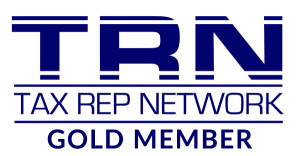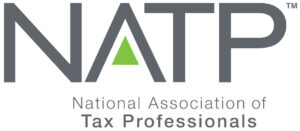WE SPECIALIZE IN TAX CONTROVERSY
YOUR TRUSTED
TAX resolution EXPERT
Clear, plain-language explanation of complex tax laws and regulations.
Deep expertise to resolve your tax problems.
Industry leading tools to provide the most effective solutions.

EXPERIENCED
Government tax agency, corporate managerial and regional professional tax firm experience

EFFECTIVE
Minimize taxes and maximize return on invested time and money

Customized
Customized services to fit your unique set of financial needs, facts and circumstances

Federal and State Tax Controversy
If you have more than $10k tax owing as an individual or as a business and want to resolve the tax debt once and for all, we have the expertise to negotiate with government representatives and navigate the byzantine requirements of tax agencies. As former tax auditors and tax attorneys for the State and the IRS, we leverage our knowledge of the inner workings of the IRS and the States to get you the most effective results to resolve your income tax and sales tax debts, audits, levies, liens, offers in compromise and other collection issues.
OUR TESTIMONIALS

OUR PRINCIPAL


Jinny Brooks
Enrolled Agent
Former Tax Auditor
Former Corporate Controller & CFO
Jinny Brooks brings 15+ years of expertise in Tax and Accounting, specializing in tax controversy, tax compliance, and CFO advisory. Her goal is to resolve issues effectively, efficiently and in the client’s best interests, proactively addressing issues of government boundaries and taxpayer rights.
As a former State Tax Auditor, Jinny has a deep, inside experience navigating the complex procedures and processes of the Internal Revenue Service, State Departments of Taxation or Revenue, State Tax Commission hearings and other taxing authorities.
As a former Controller/CFO of a 45m USD manufacturing firm and former Director of Accounting at the largest locally based CPA firm, Jinny advises on financial decisions to identify what is and is not working in your business and to make strategic, data-driven decisions for consistent, positive cash flow and growth.
Jinny graduated from The University of Chicago and has completed MBA in Accounting and PhD in Economics courses.
FAQ
Internal Revenue Code sections 7201 through 7217 codify the activities, both misdemeanors and felonies, that are illegal under the U.S. tax laws. The most common tax crime is tax evasion – failure to pay taxes, failure to report taxes, and failure to report taxes accurately.
Click here to view the Taxpayer Bill of Rights. This publication explains a taxpayer’s rights and the processes for audit, appeal, collection, and refunds.
Marginal tax rate is the highest tax rate at which your taxable income is subject to tax. For example, if you are single and your taxable income is $600,000 in 2023, your marginal tax rate is 37%. Not all of the taxable income is taxed at 37%; only the portion subject to the highest rate is taxed at 37%.
Effective tax rate is your total tax divided by your total taxable income. In the same example, the effective tax rate is 29.53%. The effective tax rate is lower because the United States has a progressive tax structure. The taxable income is segmented and each segment is taxed at different rates; higher income segments are taxed at progressively higher tax rates.
If you are filing a tax return, you may minimize your taxes through tax deductions and tax credits.
If you have not filed a tax return or paid tax due, you may be able to minimize your overall taxes and fees by engaging a tax professional experienced in tax representation matters such as an offer in compromise and partial payment installment agreement.
NEWS
2024 Year End Tax Checklist
Recordkeeping For all deductions claimed and revenues received, keep safe the digital copies of
Required Minimum Distributions
If you are 73 or older, you must take Required Minimum Distributions (RMDs) from
Cannot Pay Your IRS Tax Debt?
Do you owe the IRS more than you can afford? An offer in compromise




© 2026 All Rights Reserved.